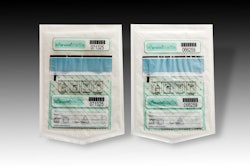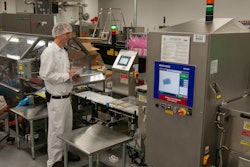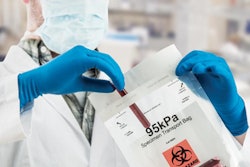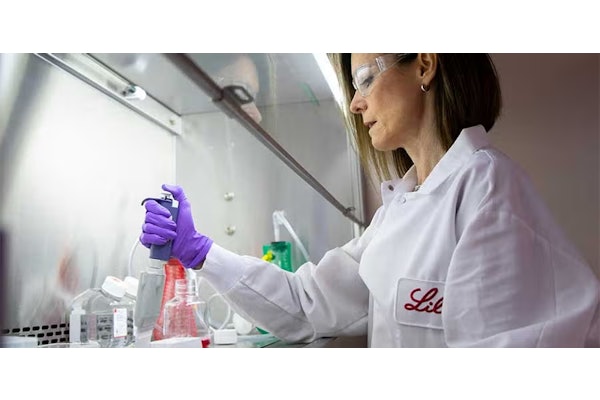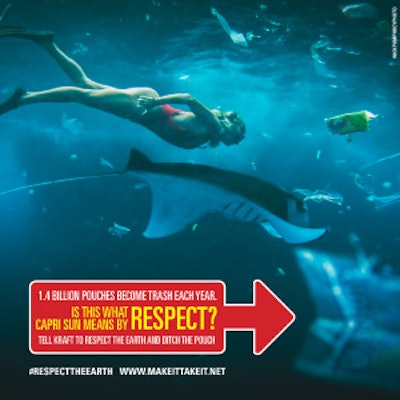
A coalition of national and state public interest groups has launched a second push through the Make It, Take It Campaign to pressure Kraft Foods to take responsibility for what the coalition sees as the impacts of Kraft’s packaging waste.
The focus is Kraft Foods’ Capri Sun pouches, which are made by bonding aluminum and several layers of plastic together, making them difficult to impossible to recycle. According to the coalition, only 2% of the pouches are estimated to be collected nationwide, “which means that nearly every Capri Sun pouch has been wasted or littered since they were introduced in the 1970s.”
Says the coalition, “While there are environmental benefits to pouches due to their light weight, which yields material reduction and saves energy, they are essentially ‘designed for the dump.’ Pouches and other flexible packaging don’t currently follow industry sustainability standards around design for recycling or composting. These single-use products have to be constantly manufactured from scratch requiring the extraction of virgin natural resources. They’re also a huge problem for the oceans. Food and beverage containers like Capri Sun pouches are among the top-five items found on beaches and coastlines.”
Says Matt Prindiville, Associate Director for UPSTREAM and Coordinator for the Make It, Take It Campaign, “If companies like Kraft are going to use pouches and other flexible packaging, then they need to get serious about recycling and ensure they don’t end up as trash. We need Kraft to work with their supply chain and the recycling industry to keep these materials out of the garbage, out of our oceans and instead put them back into service in our economy.”
An estimated 1.4 billion Capri Sun pouches are landfilled or littered each year in the U.S. Stacked end to end, that’s enough pouches to wrap around the Earth almost five times (121,527 miles). The Make It Take It Campaign is urging Kraft Foods to design their packaging to be reusable, recyclable, or compostable and take responsibility for post-consumer collection and recycling.
“What we do with flexible packaging is at the center of a core debate around who defines the future of sustainability,” said Prindiville. “It comes down to whether or not you believe that sustainable business practices should lead to the development of a circular economy, so that all of our stuff eventually goes to feed the creation of technical products like computers or to goes to feed bacteria as compost for farms or the creation of bio-based products. Right now, flexible packaging ends up as garbage and does neither.”



